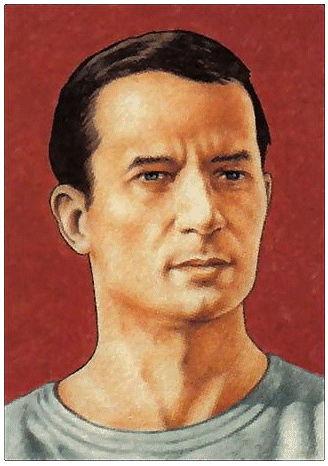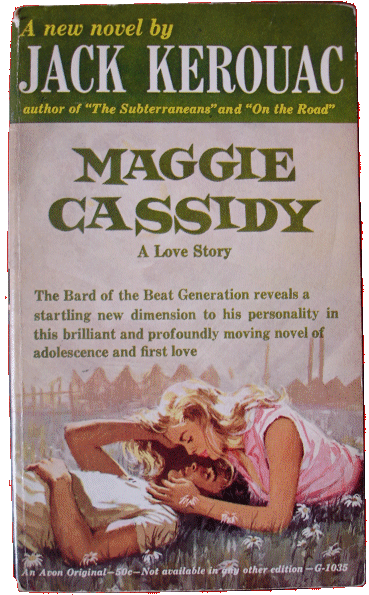
Beats | Home | Links | Moondog | Nico

When you look at the photographs of the young Jack Kerouac what do you see? The junior football star? The young handsome well muscled sailor? The drifter? The rootless poet who creates art whilst labouring with his hands?
Somewhere in there maybe Kerouac saw himself but he was also something of a realist. There are probably more contradictions to Kerouac than any of the other beats. A man who wrote about the freedom of driving across America unfettered by the normal trappings of existence who could not drive and always went home to mother. The handsome young man who was happier in the casual company of prostitutes and who could scarcely maintain a relationship with a woman for longer than a few months. Then there was the man who professed to despise "fags and queers" yet who counted Burroughs and Ginsberg among his friends, had relationships with at least one of them and on one level was in love with Neal Cassady.
On one level Kerouac was aware of these contradictions but he was a tryer. When Cassady first came to New York he had a job parking cars. Kerouac took the job over, after he left but was forced to give it up because he wasn’t any good. At times he tried to emulate not only Cassady but also other friends such as Whalen and Snyder. He was variously a brakeman, a Buddhist and a fire watcher. None of them suited him.
Actually Jack thought he was a literary genius tearing down the foundation stones of the past and remaking them in the image of the beat. He believed in the power of his spontaneous creations, devoid of amendment or tampering. Sometimes he was right. What he never saw himself as was someone more prosaic – such as Boswell for instance. When you read "On the Road" what strikes you is how pathetic Kerouac’s solo adventures are. On the first journey he sets out to hitchhike form New York and picks the wrong route, only to end up back where he started. This is also true of other books. In the "Dharma Bums" he is unable to climb a mountain peak and has to listen whilst others (Snyder) do.
Where the book really takes off is when Kerouac is with Cassady (Dean). He faithfully records every nuance and sings his praises at every turn. Cassady is what Kerouac wants to be and isn’t – the eternal thief, con, cock-smith who has everyone eating out of his hand. Yet Kerouac the writer wants to be a writer and a writer needs a subject. "On the Road" cannot be autobiographical because Kerouac is not up to the adventure but he can go along for the ride and write about someone who is.

And at the end of everything, every adventure, there is always memere, his mother. She bosses him, tells him what to eat, criticises him for not getting a good job, for having degenerate friends and for marrying poor wives. In "Subterraneans" he sleeps with Mardou but goes home to mum.
Art and life make strange bedfellows.